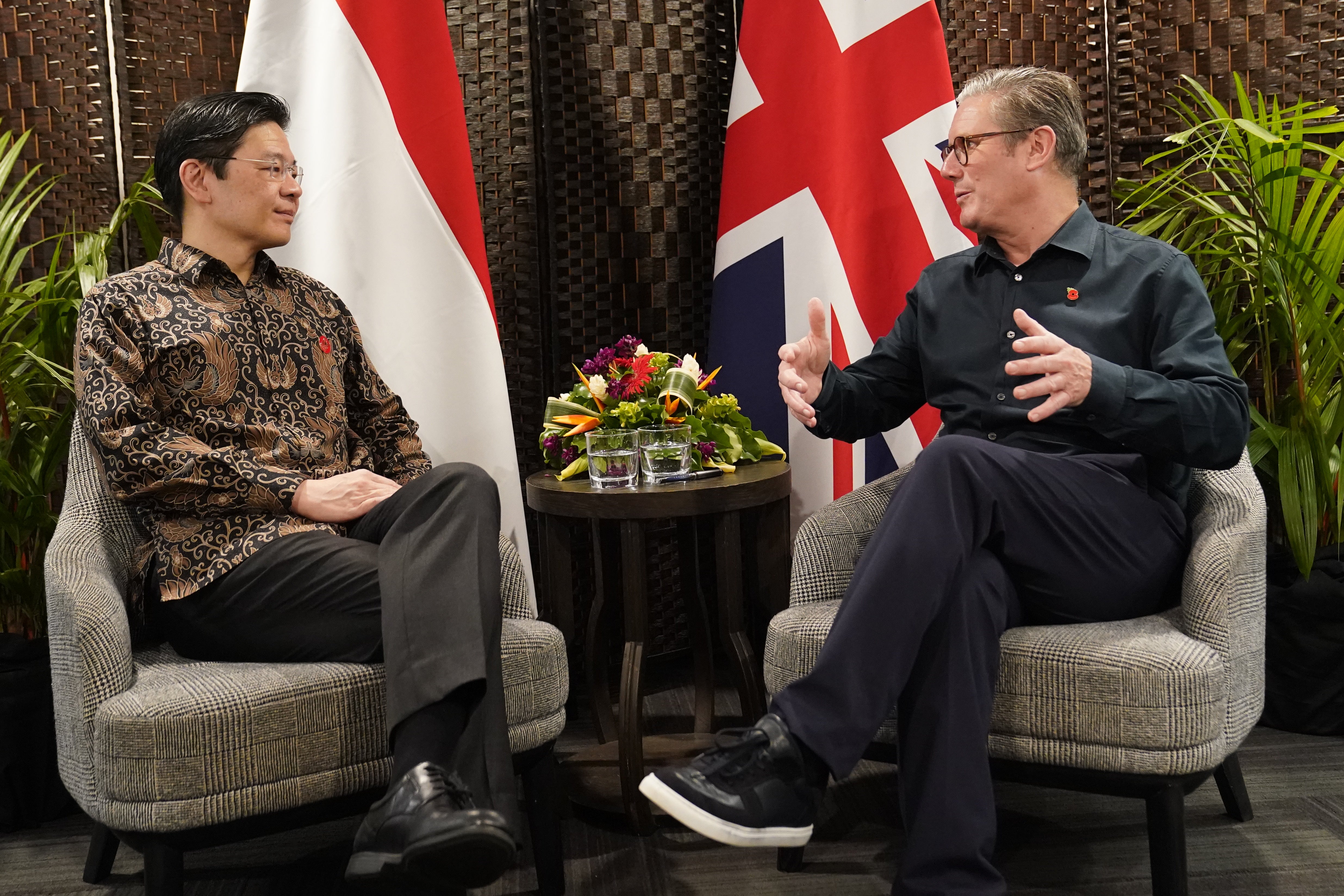
Singapore’s president Tharman Shanmugaratnam dissolved parliament on Tuesday, setting the stage for general election as the prime minister prepares to seek a mandate cost of living concerns.
Prime minister Lawrence Wong’s office announced that Nomination Day, when candidates formally submit their intent to run for office, will be on 23 April.
The election date is 3 May, the Elections Department said shortly after the parliament was dissolved.
Victory is virtually assured to the city-state's long-ruling People's Action Party, which has led Singapore since its independence in 1965.
The upcoming contest would be the first general election being found under the leadership of Mr Wong, who has sought to reach out to disgruntled younger voters.
He launched a "Forward Singapore" plan that aims to give Singaporeans a say in how to develop a more balanced, vibrant and inclusive agenda for the next generation.

High costs of living remain one of the top concerns for voters as one of the world's wealthiest nations has also become one of the most expensive cities to live in.
The 52-year-old leader of the party turned to offering cash handouts and social welfare programs to help people cope with the economic difficulties that became worse after the Covid-19 pandemic.
The party is set to field more than 30 new candidates to refresh the party.
Mr Wong has warned that "who you have in the cockpit matters" amid economic uncertainties as US tariffs hit the global trading system.
"The biggest contest we face isn't between political parties, it's Singapore vs the world," Mr Wong said in a Facebook post earlier this week. "Our mission... is clear: to keep our nation a shining beacon of stability, progress and hope."
A year ago, Mr Wong took over from Lee Hsien Loong, who stepped down from the post after two decades at the helm.
Mr Lee's departure marked the end of a political dynasty founded by his father, Lee Kuan Yew, Singapore’s first prime minister, who transformed the former colonial trading post into one of the world’s wealthiest nations over his 31-year tenure.
The incoming leader also faces challenges of widening income disparity, increasingly unaffordable housing, and overcrowding caused by immigration.
Although the People’s Action Party has never faced a serious threat to its parliamentary super-majority opposition parties have been actively campaigning in recent weeks, hoping to stage an upset.
This election will serve as a test of public confidence in Mr Wong, following the party’s worst electoral performance in 2020, when it secured around 61 per cent of the popular vote and 89 per cent of parliamentary seats during the pandemic.
The party has also faced allegations of restrictions on free speech with media censorship and the use of oppressive laws against dissent.
In 2020, opposition parties, the Workers’ Party and Progress Singapore Party, secured seats in parliament and Pritam Singh of the Worker’s Party was declared as the leader of opposition.
Mr Singh has warned that the Workers’ Party now faces a “real risk of a wipe out” and suggested that at least one-third of parliament should have opposition MPs.
Australian girl dies as fire erupts in Singapore cooking class
Woman at centre of Netflix crime documentary charged with fraud in Singapore
Trump says Xi in Vietnam to ‘screw’ US as China calls for unity against ‘bullying’
Why tourists are flocking to Vietnam’s battlefields, 50 years on from the war
Indonesian judges who cleared three palm oil companies of corruption charges arrested
Myanmar hit by fresh earthquake during hundreds of aftershocks







